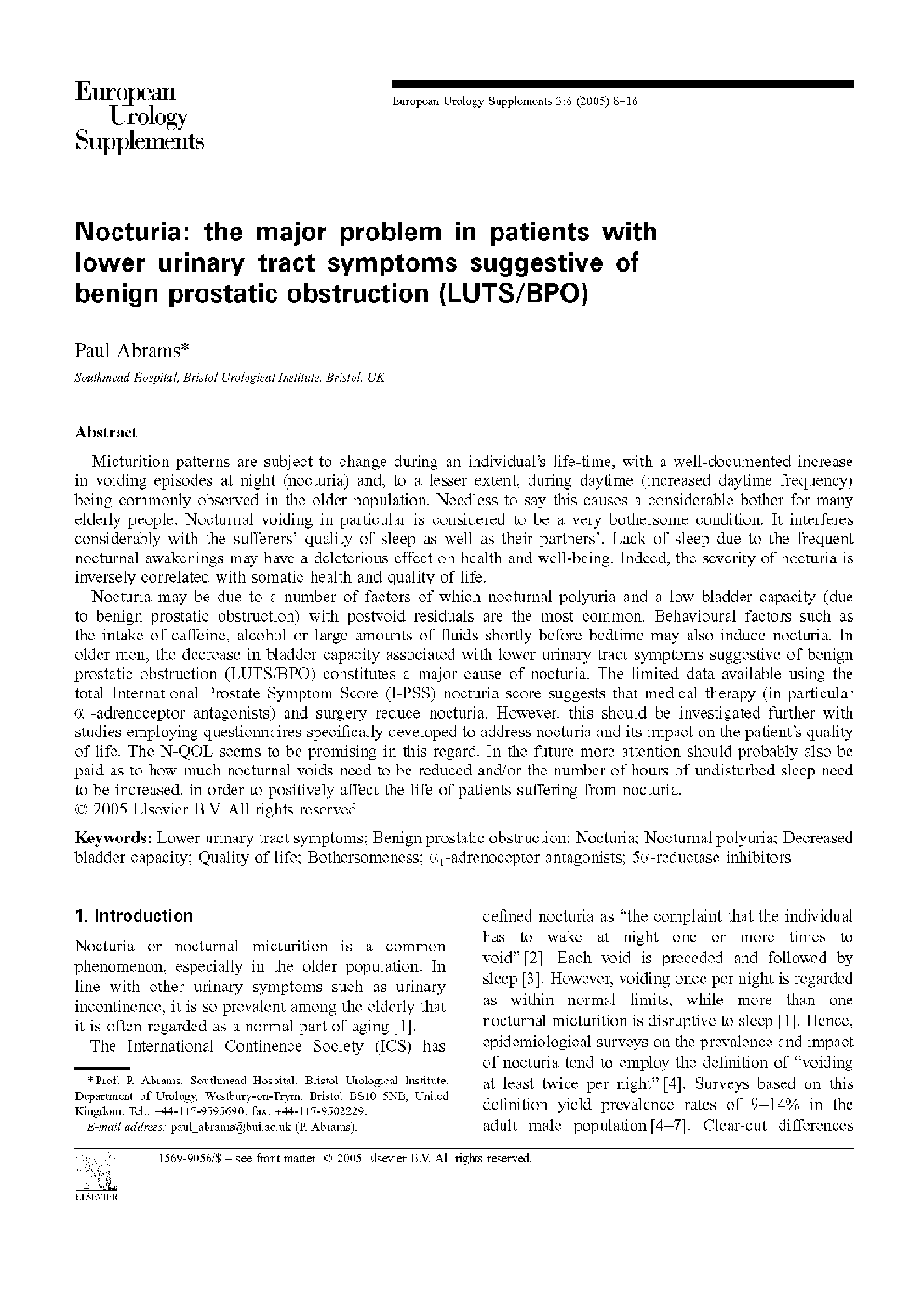| Article ID | Journal | Published Year | Pages | File Type |
|---|---|---|---|---|
| 9319965 | European Urology Supplements | 2005 | 9 Pages |
Abstract
Nocturia may be due to a number of factors of which nocturnal polyuria and a low bladder capacity (due to benign prostatic obstruction) with postvoid residuals are the most common. Behavioural factors such as the intake of caffeine, alcohol or large amounts of fluids shortly before bedtime may also induce nocturia. In older men, the decrease in bladder capacity associated with lower urinary tract symptoms suggestive of benign prostatic obstruction (LUTS/BPO) constitutes a major cause of nocturia. The limited data available using the total International Prostate Symptom Score (I-PSS) nocturia score suggests that medical therapy (in particular α1-adrenoceptor antagonists) and surgery reduce nocturia. However, this should be investigated further with studies employing questionnaires specifically developed to address nocturia and its impact on the patient's quality of life. The N-QOL seems to be promising in this regard. In the future more attention should probably also be paid as to how much nocturnal voids need to be reduced and/or the number of hours of undisturbed sleep need to be increased, in order to positively affect the life of patients suffering from nocturia.
Keywords
Related Topics
Health Sciences
Medicine and Dentistry
Obstetrics, Gynecology and Women's Health
Authors
Paul Abrams,
